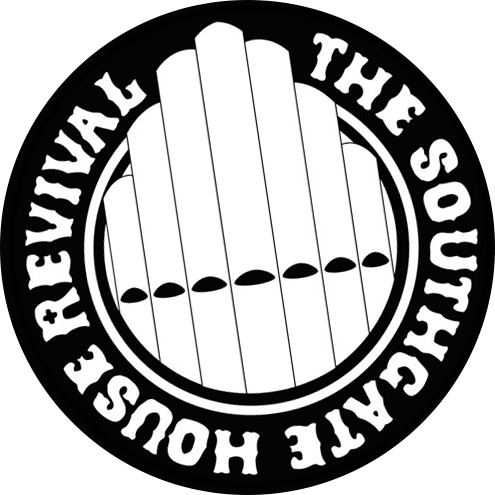MoonRunners Festival Night Three
- IV and the Strange Band
- Little Foot
- Sister Wife Sex Strike
- Danny Attack
- Gunsafe
- Tail Light Rebellion
- Soviet Shiksa
- Dead, Dead Swans
- Help Hounds
- Just Reuben
- Gary Moore II
- Smitten for Trash
- Quiver the Busker
- Justin Arena
- poppy s. fields
- The Moray
- The Muckers
- Yes, Ma'am
- Josh and the Dirty Rags
- Bryan Raymond
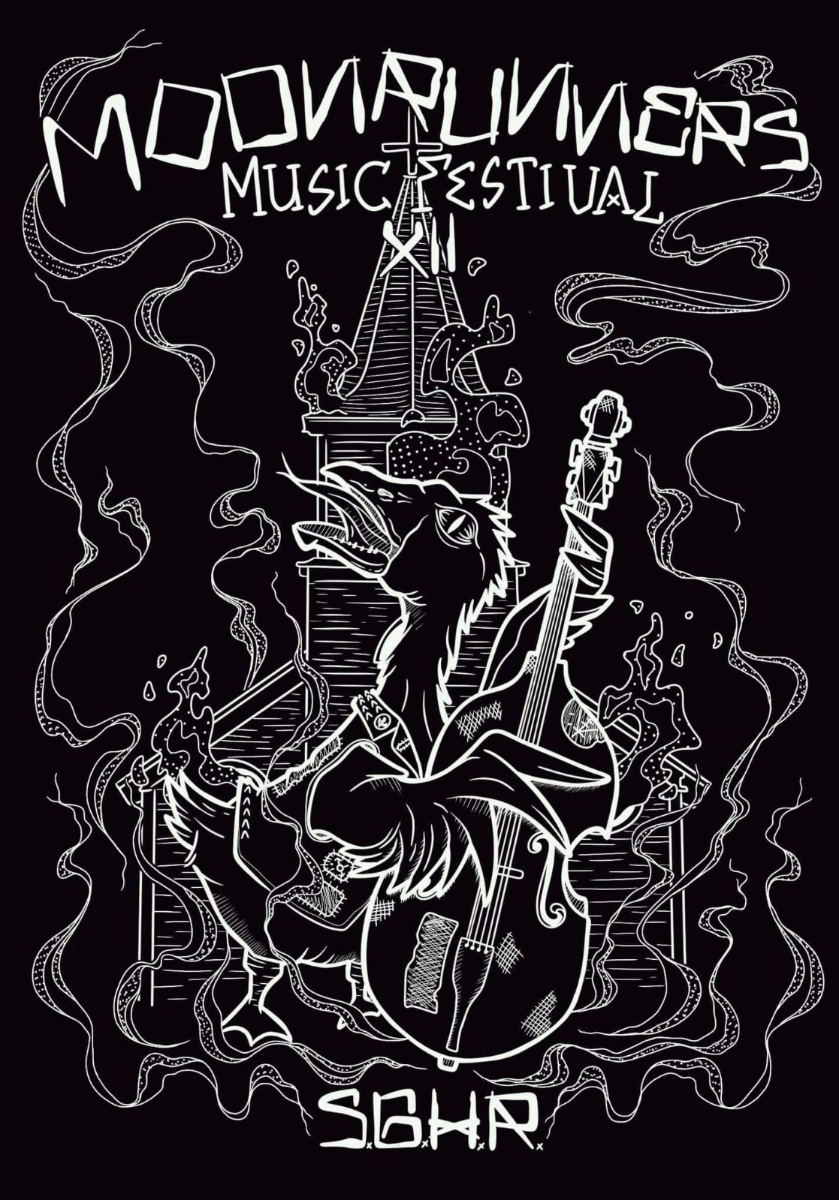
Bryan Raymond
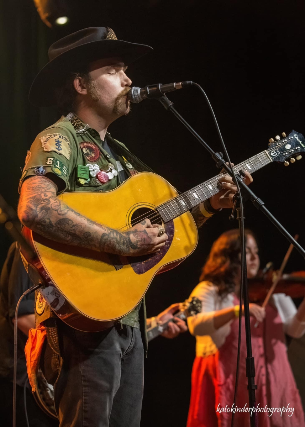
|
IV and the Strange Band
|
|
"Patience is a virtue." Those words are tattooed across Coleman Williams' right arm, forever reminding the alternative-country singer/songwriter of the benefits of taking one's time. The lesson wasn't always so clear. As the great-grandson of Hank Williams Sr., grandson of Hank Williams Jr., and only son of Hank 3, Coleman spent years waging an internal battle with the expectations thrust upon him by his own lineage. He represented the fourth generation of country music's most legendary family — hence his nickname, "IV" — and the pressure to launch his own career was enormous. Although Coleman would eventually make his mark with Southern Circus — the genre-bending debut from his band, IV and the Strange Band, combining southern storytelling and country textures with 100-watt guitar amps and DIY attitude — he needed to break free first and discover his own musical approach along the way. "Before I even knew who I was, people were already expecting things of me," he says. "It felt like there was zero freedom of expression for someone with the last name 'Williams.' Singing about a bloodline didn't appeal to me, though. I wasn't interested in fitting into a shadow that already existed. What did appeal to me was the underground scene in Nashville." Coleman became a fierce champion of Nashville's house-show circuit as a teenager, drawn in by the scene's supportive spirit and DIY ethics. This was a community that valued principles over pedigrees. A community that offered artists of all stripes a place to express themselves. From punk shows to heavy metal gigs to electronic experiments, Coleman loved it all… and for the first time in his life, he felt like he belonged somewhere. "I was a weird kid who grew up in an unusual situation," he says. "When I began going to house shows in Nashville, I felt like I'd found a family of people whom nobody else wanted — kids who were different and misunderstood — and during these two-hour shows, everyone belonged, everyone felt accepted, and everyone had a place. The experience taught me to trust my instincts. It gave me a new sense of independence. I have to believe that's why Hank Williams made music, too; he could see what it did for people." Inspired to blaze his own trail, Coleman left town after high school and traveled across America, developing musical tastes that were as diverse as the country itself. Over the decade that followed, he became a history buff, a poet, a metalworker, and an educator. Back home in Nashville, he continued his lifelong practice of writing songs, developing the unique sound — a blend of the amplified and the acoustic, laced with fiddle one minute and heavy guitars the next — that would later fill Southern Circus. Coleman took his time. He wanted the sound to be right. Patience is a virtue, after all. Local producer Jason Dietz became a fan of Coleman's songs, prompting the two to begin collaborating. Guitarist David Talley joined them, as did banjo player, Daniel Mason and drummer Carson Kehrer. All five musicians (along with fiddler Laura Beth Jewell and steel player, John Judkins who both appear on the record) came from different musical backgrounds, but they worked together to build something new, using Coleman's acoustic tunes as the blueprint for a southern sound that was soothing one minute and strident the next. An album began taking shape. Just shy of his thirtieth birthday, Coleman Williams made his long-awaited debut with "Son of Sin," a single that was released in 2021 by IV and the Strange Band. "I like to say, 'What doesn't kill you makes you stranger,'" he explains. "I love strangeness and I love my Strange Band. The most genuine people in this world are those who allow themselves to be the weirdos they truly are, because once you repress yourself, that's when you become someone you're not." Coleman channeled this love of the weird and self-certainty into Southern Circus which bounces between autobiographical songs and story-driven tracks inspired by Coleman's historical interests. On "Inbred," he turns the true-life tale of the Fugates — a Kentucky family whose inbred history attracted the attention and anger of religious zealots during the 1800s — into a song about Christian hypocrisy. "Malice" is a swaggering country song based upon a newspaper article about a married couple who each decided to poison the other on the same morning, while "Drinking Sad" pays tribute to the outlaw country bar songs that soundtracked Coleman's childhood. Appropriately, modern-day outlaw Jaime Wyatt appears on the hauntingly elegant "Broken Pieces," contributing vocals to a song about, as Coleman puts it, "the idea someone can’t truly love you unless they know how fucked up you really are."Perhaps nothing encapsulates Coleman Williams' story better than "Stand Your Ground," a seize-the-day anthem that advises its listener to roll with the world's punches and refuse to remain knocked down. The song opens with a leisurely lope, only to segue into a faster section propelled by train beats, banjo arpeggios, and Coleman's anthemic melodies. There are flashes of country twang and rock & roll grit throughout, fused together by a man who's not afraid to blur the dividing line between those camps. Southern Circus offers a peak into Coleman's personal world, and under this Big Top, all southern sounds — and all people — are welcome. "PT Barnum always said, 'The clowns are the heart of the circus,'" Coleman notes. "The circus is all about expression — about being yourself and finding a unique family, just like the house-show scene — and clowns embody that spirit. They're comfortable with being themselves, and they're trying to give you a pure, emotional catharsis. I love that. I feel like I'm the clown of this southern circus." Southern Circus finds a balance between spectacle and spirit, determination and deliverance, melodies and muscle. It's the sound of a man honoring his family tree while planting his own garden. To make it, Coleman had to leave home, explore sounds that stretched beyond his bloodline's catalog, and challenge the world's expectations that he'd join family business. Southern Circus is his homecoming: an album that finds him not falling into a legacy, but earning it.
|
|

|
Little Foot
|

|
Sister Wife Sex Strike
|

|
Danny Attack
|

|
Gunsafe
|
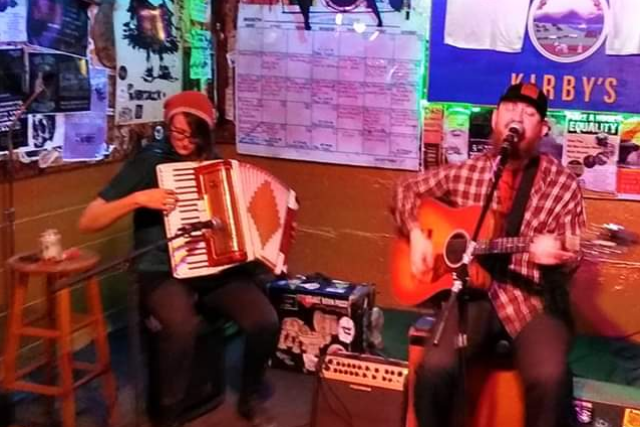
|
Tail Light Rebellion
|
|
Like all good teenage madmen dreamer poets who fell in love with the beat generation, I found a guitar and saw it as my ticket out of nowhere, and it’s painful banality. Started playing in bands to get lost in the beat, scream and sing my piece, and go places. My head was a muddling of the different music I heard growing up, from everything big in the 90s (Punk, Ska, Industrial, old 80s Thrash Metal, 60s and 70s rock my parents listened to as well as their collection of old Irish folk music).
Heard the Pogues for the first time while I was drinking a bottle of MD 20/20 while waiting for a flight to meet up with friends down in Virginia, and fell in love with what they had done: You could be both that heavy without distortion, and intelligent lyrically. I was blown away. Needless to say, I quit the band I was in and started playing under the name The Swaggerin’ Growlers in Seth Moore’s basement in 2004.
Discovered Woody Guthrie and Common Rider and felt this weird thing called hope for the first time in my life. Strange new direction for a former sad bastard. Moved from my native New Hampshire to Boston in 2006 to give music a real go - the trendy destination for all rock and rollers of the area at the time. It’s there that heard Mischief Brew, from my buddy Twitch, a basement show regular, who happened to catch them with Leftover Crack and said ‘this guy reminds me a lot of you’. Let’s be honest, a) I’m not nearly that good and b) that changed my goddamned life about as much as the Pogues did. Same with the World / Inferno Friendship Society. In spite of the hellish environment that New England could be, I saw the potential for passion and beauty in it all. Something much, much bigger than I had ever seen or felt before. I immediately started playing with both aforementioned bands, and started touring the second I could pull it off with a 5 person band.
After about the 5th or so lineup disintegration, a personal life that was growing increasingly violent and desperate, and a trashed band name that made booking damn well near impossible, I had some life reevaluation to do. Erik and Denise’s house, better known as the Mischief Brew / Fistolo Records compound, had become a sanctuary over the years for us weird traveler types that did strange things to both folk and punk, between Erik’s creative output, and Denise’s magical ability to herd cats - I ended up there a lot before, during, and after tours. At the time, Erik was covering one of my favorite New Model Army songs, Vagabonds. So I put together the opening line of Vagabonds (We followed the tail lights out of the city, moving in a river of red) and Erik’s proto Mischief Brew band, Kettle Rebellion - I was utterly hooked on the song Away With Purity, and the gritty texture everything had.
Tail Light Rebellion was born. (insert trumpets).
Why? Because when your car is totaled, you either stay where you’re at and call it over, or get another one, and keep driving. I’m still me, and I’m still hear to scream and sing my piece. Spent the next few months homeless yet again, this time out of choice to escape the nightmare I was living in, and crash landed in an apartment in Boston’s mostly forgotten Borough - Hyde Park. The infamous Hyde Park triple decker, where I recorded a demo in the basement. It’s there that I met Tim, this fantastic percussionist with a passion for video and scoring music for them, (now done under the name Chozame Studios) and some kid living in the garage rehearsal space, Rob Black (Y’all know Burt Camero by now). Mixed down the demo at my good friend Griffin Sullivan’s place, as well as an extended few days at the Fistolo compound, and down the goddamned road I went.
Still am. Probably always will be.
Since then I’ve lived van lived on the street, lived in Grand Rapids, MI, Memphis, TN, and as of this writing, Greensboro, NC. Each place I stay is home and I wouldn’t want it any other way.
|
|

|
Soviet Shiksa
|
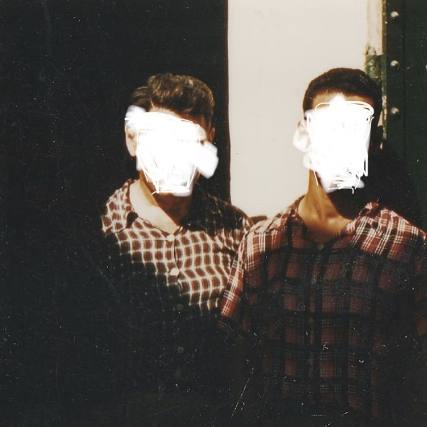
|
Dead, Dead Swans
|
| Folk band from the Midwest | |

|
Help Hounds
|

|
Just Reuben
|

|
Gary Moore II
|

|
Smitten for Trash
|

|
Quiver the Busker
|

|
Justin Arena
|

|
poppy s. fields
|

|
The Moray
|

|
The Muckers
|
| Atlanta-based Irish rock band | |

|
Yes, Ma'am
|

|
Josh and the Dirty Rags
|

|
Bryan Raymond
|
